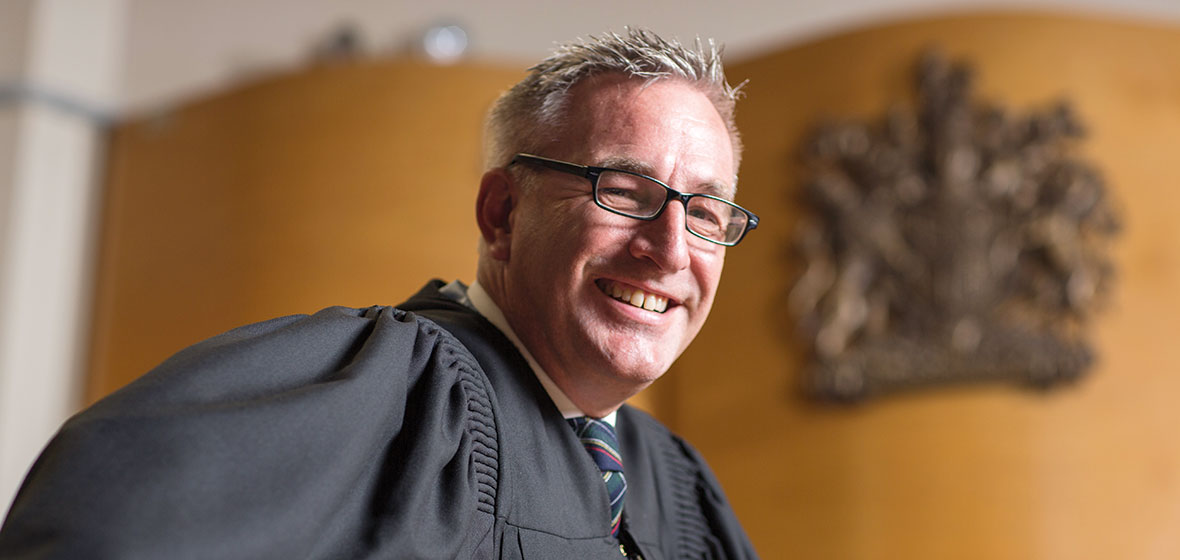Winter in Queanbeyan is bitterly cold, but the mood in the courthouse is of anticipation, not fear. A pile of papers towers in front of Michael Antrum, 48, the magistrate for Queanbeyan and Cooma Local Courts.
Court begins at 9.30 but by 9am there are dozens of people waiting outside. Within half an hour the magistrate has moved through 11 cases. No one is joyous, not even those who avoid jail or loss of licences and fines. Their faces, and those of their solicitors and relatives, are stern. The toughest case is of a 40-year-old man sentenced to four months jail for high-range drink driving. His partner sobs as he is led through the side doors for processing. He doesn’t look at her. The saddest moment is when a homeless man with bipolar represents himself on a charge of assaulting his mother. The magistrate encourages him to find a lawyer but the plaintiff, who isn’t wearing shoes, is determined to have the matter wrapped up.
Magistrate Antrum moves through the cases at dizzying speed. Local courts deal with more than 90 per cent of criminal matters in NSW. Dates are set, apprehended violence orders are reviewed, a woman with an intellectual disability is beamed in via audio-visual link from the south coast hoping to be bailed. She fails. The only pause in proceedings is when Magistrate Antrum says he needs time to read the details of the cases. The court falls silent. A middle-aged woman holds her sister’s hand and weeps. When the magistrate sentences her truck-driving husband to seven months jail she sobs out loud, then covers her mouth in relief when he adds that home detention is an option. JANE SOUTHWARD spends a day with Magistrate Michael Antrum.
It’s a privileged position being a magistrate and I don’t mean that in any arrogant sense. You can bring to bear your own experience of life and your training, and you’re given a very sober job to do – handing out punishments, penalties and probation orders. These things, for better or worse, have major impacts on people’s lives. I feel that responsibility very keenly.
I grew up in Sydney and went on to study communications at the University of Technology. We were not a legal family at all, but I decided to study law after that. I felt the need to keep studying. I also completed a Graduate Diploma in Military Law at the Australian National University.
There’s a big difference working in a small town court. We are always encouraged to maintain a low profile. When you are in a smaller town you have to be careful about your movements and your associations, because the statistical likelihood of bumping into a person you have just sentenced, or have to sentence tomorrow, is much higher. It’s one reason my family and I live in Canberra.




